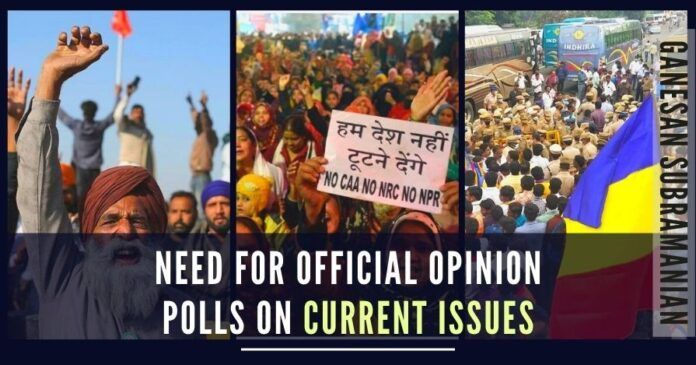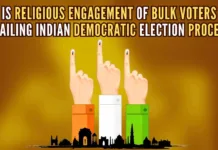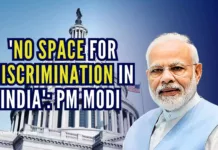
At the outset, let me clarify that this article is NOT about the right or wrong of the 3 farm laws, nor about whether agitations are good or bad.
The opposition will almost always join any agitations
The nation and the states are often in agitation mode. The on-going farmers’ agitation against the 3 Central latest farm laws, the recent Shaheen Bagh protest against CAA, and the many protests in states like the agitation in Tamil Nadu by PMK (Pattali Makkal Katchi) demanding reservation for one caste within OBC reservation are examples.
The job of governments is continuous improvement, which involves enacting new laws and scrapping old laws. Any such action is likely to be welcomed by some and disliked by some others. A large majority may not have any views either because they don’t care either way or because they don’t understand much. By default, the opposition will almost always join any agitations, regardless of who is in government and who is in opposition.
The views of the silent majority go unknown and unrepresented during the negotiations with the governments.
Those who oppose new laws would protest, and usually, all the others would keep quiet. Media bring such protests to center stage. India being a participative democracy, the right to protest is guaranteed, subject to reasonable restrictions.
This is part of the democratic process. Nothing wrong per se, it appears. But there are some major problems in this process.
Since governments won’t like to be seen as being tough with their own people, even when the protestors don’t abide by reasonable restrictions, they allow a lot of leeway to such protestors, pleading and negotiating with them. Very often, the governments will be forced to climb down from reforms, completely or substantially, even if such climb-downs were not in the interest of the nation.
The views of the silent majority go unknown and unrepresented during the negotiations with the governments. I’m not saying this only with the farmers’ agitation in mind but in general.
For example, assuming (but not conceding) a large majority of farmers across India are in favour of the 3 new laws, there is no opportunity for their voice to be heard in either the agitations or the negotiations.
The surveys will be preceded by more reasoned and well-contested debates from both sides. Protests and agitations may not be needed.
In such a situation, if only there were a way to know the pulse of the farmers across India, state-wise, land-holding-wise, crop-wise, etc, the government would be in a better position to negotiate with the agitators. Opposition parties won’t dare oppose laws for the sake of opposing the government, since they won’t like to go against the will of the majority of farmers. The government would include the silent majority of farmers in the negotiations. The people at large would stand by the government if the agitators cross their reasonable restrictions. Reforms would succeed against agitators.
On the other hand, if a large majority of the farmers across India are opposed to the 3 farm laws, sensing their pulse, the government would retract them.
The entire farmer community, the government, the general public, the media, and even foreign governments and the UN are framing their views, and some are taking strong positions, in the absence of the feel for the viewpoints of the farmers across India.
Some nations like China being non-democracies are able to take decisions and move forward without being dragged down by the pulls and pressures of democracy. I’m not advocating against democracy, but I’m just saying that we should be conscious of the fact that non-democracies enjoy a distinct advantage and as a democracy, we are already at a disadvantage, and we should not make it even more difficult to do reforms in India, whoever may be in power.
The world is becoming an extremely competitive place. With China’s aggression, and with the apathy of the world to the imbalance in the world order, the consequences of not measuring up to the global challenges would be devastating. So, today the need for quick and intense reforms across all sectors of the economy is much more imperative than ever before. We can’t afford agitations against every reform.
But at the same time, there is a need for maintaining balance in the reforms. Ill-conceived reforms would be damaging too.
The best guard against mistakes in reforms is evolving into an informed and enlightened society.
If NSS – National Sample Survey (or any neutral government-funded but independent body) were to extend its scope and conduct monthly opinion polls (based on reasonable sample sizes) on various topics of current interest, like CAA, farm reforms, reservation within the reservation, etc, and publish the results, it will help the decision-makers make informed decisions, and the general public understands the mood of the nation. The surveys will be preceded by more reasoned and well-contested debates from both sides. Protests and agitations may not be needed.
In the case of farmers’ agitation, NSS could survey farmers and publish how well they understand the issues involved at a macro level, whether they support the farm laws or the agitation, and publish the views, based on nationwide, state-wise, farm-holding-wise (no of acres), gross income-wise segmentation. It will educate the agitating and silent farmers, the government, the media, and the general public.
Where the mood of the affected people and the general public are against the government, it will help the government make course corrections in an informed way. Where the mood of the affected people and the general public are against the agitation, it will help the government boldly go ahead with the reforms, and help contain the agitations based on popular support.
This will help strengthen democracy and the national economy.
Note:
1. The views expressed here are those of the author and do not necessarily represent or reflect the views of PGurus.
- How BJP can get 33%+ vote share in TN - April 1, 2024
- A transparent, equitable electoral funding alternative - March 19, 2024
- How TN BJP can come to No. 1 or No. 2 in 2024 LS polls - January 11, 2024











Enough data on MSP and other farm benefits have been provided by panelist’s in TV. Modi’s intentions are honourable and in case the farm laws are hurting farmers, laws can be amended in future. Farmers are getting subsidy from buying tractors, fertilisers,drip irrigation power, seed supply, zero income tax etc. what else they want ? Worst sufferers in India are people in age group 60 to 80 years who are supposed to provide wisdom and direction to inexperienced younger generation. They are gold and treated humanely in west and as scrap in India. Indians doesn’t deserve democracy, where almost every law is misused, misinterpreted and opinion of wise hardly matter in India.
Yes… a big YES